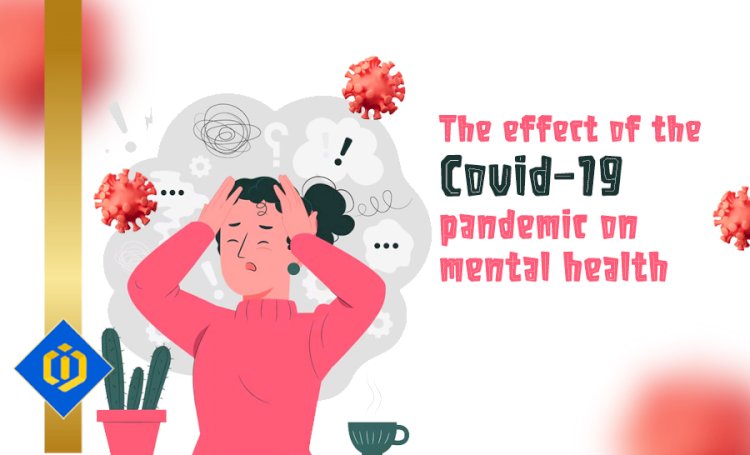How Has Covid-19 Impacted the Mental Health of People?

People's mental health has significantly been impacted by the COVID-19 pandemic all over the world. Numerous people's psychological health has suffered as a result of social isolation, financial hardships, and infection-related anxiety. It is worrying that this impact could have long-term effects.
The two most prevalent mental health conditions that people have encountered during the pandemic are anxiety disorders and depression. According to research, since the pandemic started, anxiety and depression have become much more common. According to a study done in China, the prevalence of depression and anxiety symptoms in the general population was 16 percent and 28 percent, respectively, during the pandemic, which was significantly higher than the rates before the pandemic. Similar findings have been made by studies done in other nations regarding elevated levels of anxiety and depression during the pandemic.
Another long-term mental health impact of the pandemic is post-traumatic stress disorder (PTSD). A traumatic event can cause PTSD, a mental health condition, in both the experiencer and bystander. Healthcare professionals who were on the front lines of the pandemic are more likely to experience PTSD. According to a study from China, during the pandemic there were 22.8% of healthcare workers who had PTSD.
Unrest in the sleep cycle is another typical pandemic mental health problem. Numerous people now experience sleep issues as a result of the pandemic, daily routine disruption, increased screen time, and stress and anxiety. According to research, up to 50% of people during the pandemic reported having sleep disturbances.
The pandemic may also have long-term effects on people's mental health due to substance abuse. A greater risk of substance abuse may be brought on by the stress and anxiety brought on by the pandemic, as well as social isolation and financial hardship. An American study6 found that alcohol consumption rose significantly during the pandemic, especially among women.
Healthcare workers, seniors, those with pre-existing mental health conditions, and COVID-19 infected individuals may be more susceptible to the pandemic's long-term effects on mental health. The pandemic's long-term effects on mental health serve as a reminder of how crucial it is to offer those who are affected by the disease resources and support for their mental health.
As a whole, the COVID-19 pandemic has had a significant negative impact on people's mental health, with long-term effects like anxiety disorders, depression, PTSD, sleep disturbances, and substance abuse possible. To lessen the long-term effects of the pandemic on mental health, it is crucial to recognize and provide resources and support for those with mental illnesses.
Author: Pooyan Ghamari, Swiss Economist and Visionary in Global Markets and Finances

 content-team
content-team 


















